Maximizing CRM Ticketing Efficiency: A Comprehensive Guide
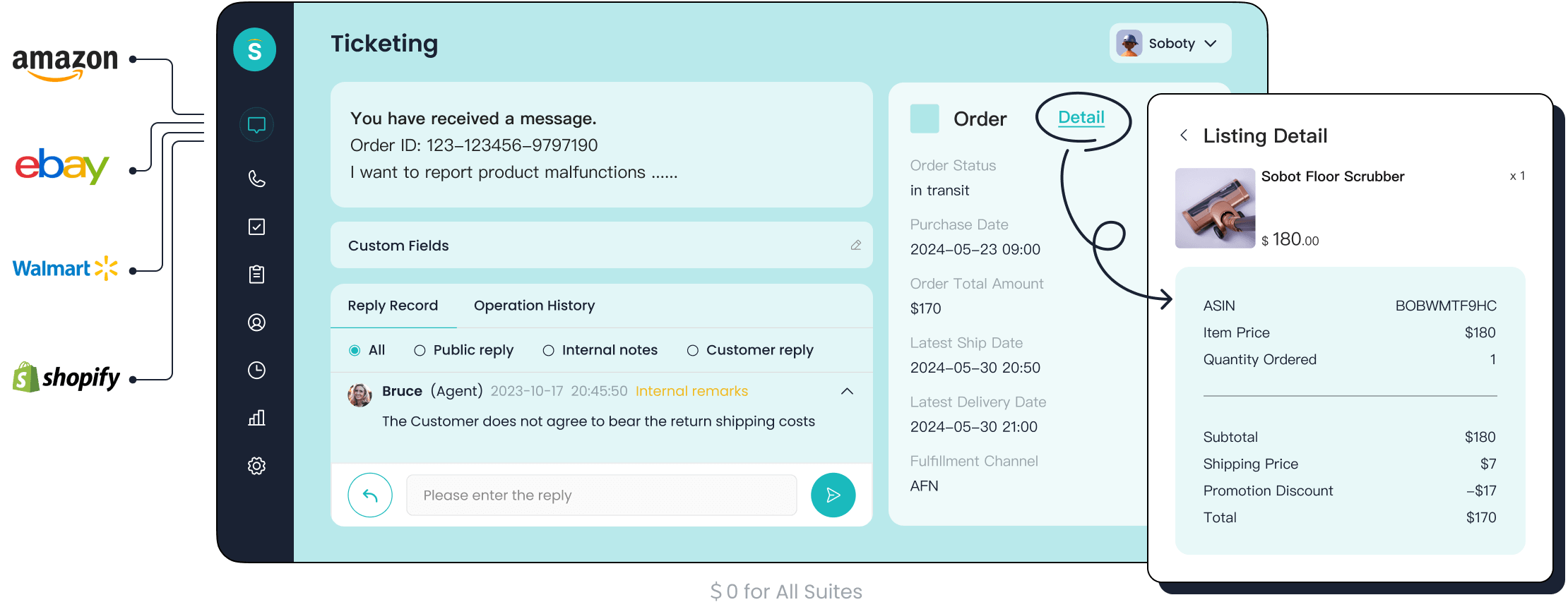
In the fast-paced world of customer support, a robust CRM ticketing system serves as the backbone for managing customer interactions effectively. Efficient ticketing processes can transform your operations, directly enhancing customer satisfaction and loyalty. Metrics like first response time, average resolution time, and first contact resolution rate significantly influence satisfaction levels, ensuring your support team delivers timely and accurate solutions.
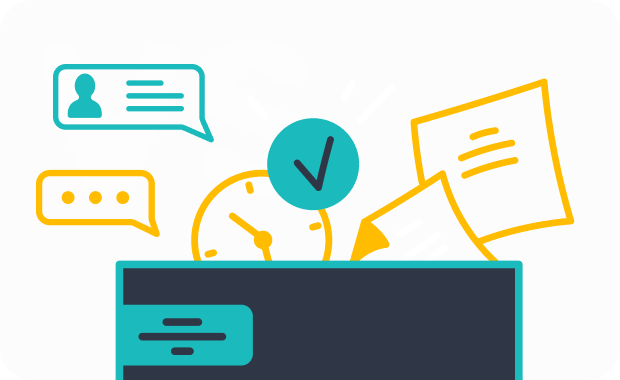
Sobot's Ticketing System exemplifies innovation in this arena. By automating workflows, integrating communication channels, and leveraging AI-driven tools, it empowers businesses to streamline operations while addressing customer needs efficiently. Such tools are not just an operational asset but a strategic advantage in today's competitive landscape.
Understanding CRM Ticketing Systems
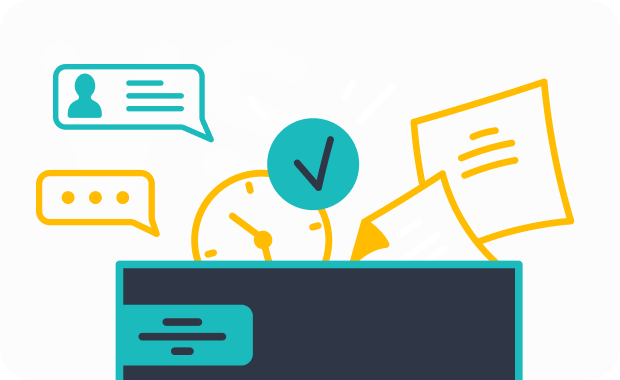
What is a CRM Ticketing System
A CRM ticketing system is a software tool designed to manage customer inquiries and issues efficiently. It organizes these interactions into "tickets," which serve as records of communication between your team and customers. These systems streamline the process of tracking, assigning, and resolving tickets, ensuring that no query goes unanswered.
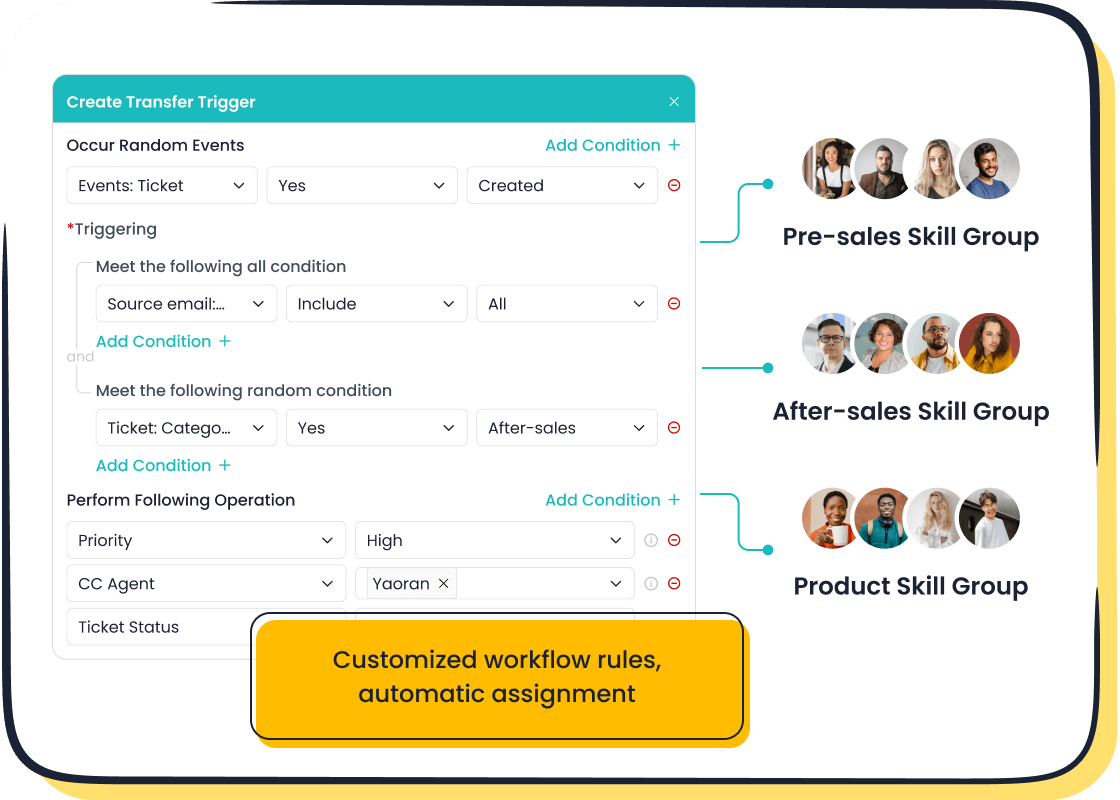
Modern CRM ticketing systems, like Sobot's Ticketing System, unify communication channels such as email, voicemail, and chat into a single platform. This integration simplifies ticket management and enhances operational efficiency. By automating repetitive tasks, these systems reduce manual effort, allowing your team to focus on delivering exceptional customer support.
The Role of CRM Ticketing in Customer Support
CRM ticketing systems play a pivotal role in customer support by ensuring timely and accurate responses to inquiries. They act as a centralized hub for managing customer interactions, enabling your team to prioritize and resolve issues effectively.
Several case studies highlight their impact:
- The implementation of HubSpot for Global GSA improved ticket management through automation and centralized communication.
- A telecom provider used a CRM ticketing system to automate routine tasks, reducing response times and boosting customer satisfaction.
- Another company enhanced issue resolution speed by automating ticket assignments, leading to better customer experiences.
These examples demonstrate how CRM ticketing systems can transform customer support operations, improving satisfaction and operational efficiency.
Key Features of Efficient Ticket Management Solutions
Efficient ticket management solutions offer features that simplify workflows and enhance productivity. Industry experts emphasize the importance of tools that automate and streamline processes.
| Feature | Description |
|---|---|
| Smart Ticket Search | Uses NLP to locate relevant tickets quickly, improving search efficiency. |
| Automatic Ticket Classification | Categorizes tickets upon creation, reducing manual sorting efforts. |
| Guided Resolution Steps | Provides technicians with checklists and scripts for faster issue resolution. |
| Advanced Reporting | Offers real-time tracking and analytics for better decision-making. |
| Customization Options | Enables tailored solutions, including branded ticket stores for unique customer experiences. |
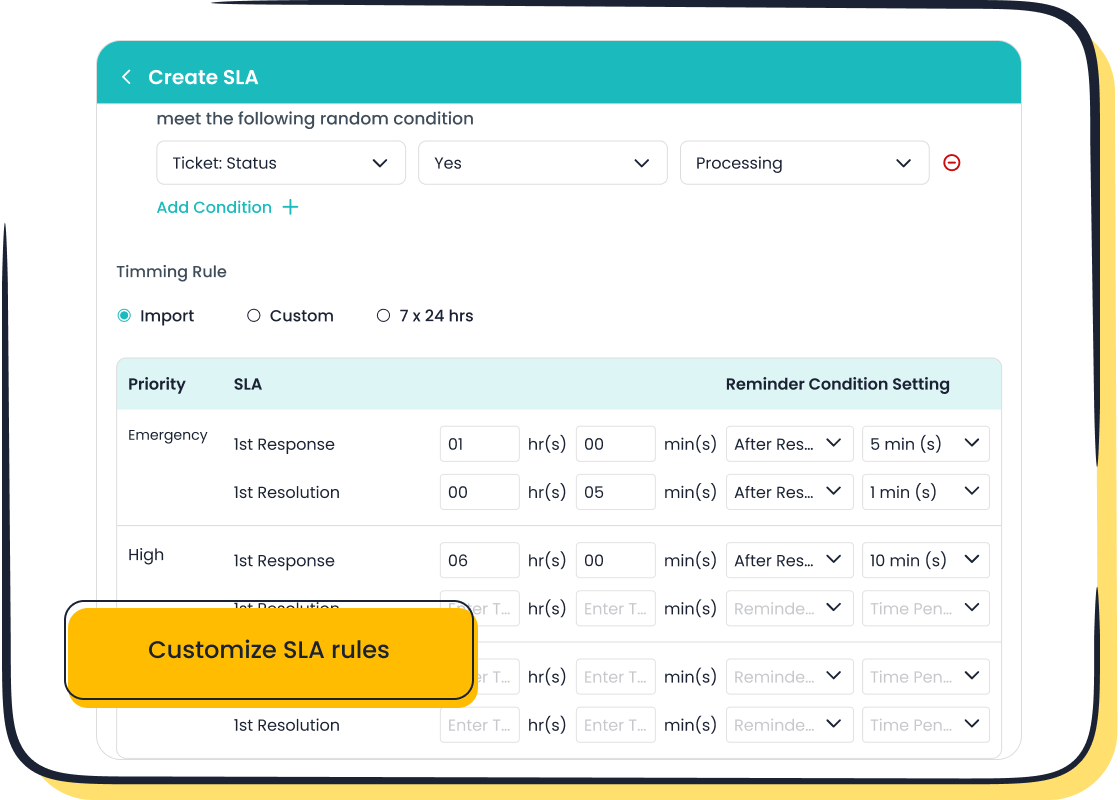
Sobot's Ticketing System incorporates many of these features, including automatic ticket assignment, SLA management, and multilingual support. These capabilities ensure that your team can handle inquiries efficiently while maintaining high levels of customer satisfaction.
"Our Smart Ticket Management solution is transformational for the MSP and IT markets," said Michael George, CEO, Syncro. "By leveraging AI to automate and simplify the ticket resolution process, we’re enabling our partners to achieve greater efficiency and productivity."
Efficient ticket management solutions empower your team to deliver exceptional customer support while optimizing operational workflows.
Common Challenges in CRM Ticketing
Inefficient Ticket Prioritization
When ticket prioritization lacks structure, your support team struggles to address urgent issues promptly. This inefficiency impacts customer satisfaction and operational performance. For example, without clear prioritization rules, high-priority tickets may get buried under less critical ones, leading to delayed responses.
Performance indicators highlight the consequences of poor prioritization:
| Performance Indicator | Description |
|---|---|
| Average response time | Measures the time taken to respond to tickets. |
| Resolution time | Indicates how long it takes to resolve issues. |
| Customer satisfaction scores | Reflects customer feedback on support experience. |
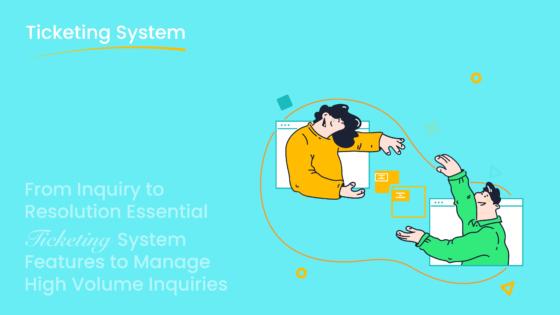
Efficient ticket management systems, like Sobot's Ticketing System, address this challenge by automating ticket classification and prioritization. Features such as custom trigger rules ensure that urgent tickets are routed to the right agents immediately, reducing response times and improving customer satisfaction.
Lack of Automation in Ticket Management
The absence of automation in ticketing processes creates bottlenecks that slow down resolution times. Manual ticket routing and repetitive tasks consume valuable time, leaving your team overwhelmed. Studies show that automation accelerates first response time by 37% and resolves customer issues 52% faster. Without automation, these delays can frustrate customers and reduce loyalty.
Sobot's Ticketing System integrates automation to streamline workflows. It automatically assigns tickets based on predefined rules, eliminating manual effort. Features like SLA reminders and canned responses further enhance efficiency, ensuring your team delivers timely and accurate solutions. By adopting automation, you can transform your support operations and achieve faster resolution times.
Poor Integration with Other Tools
Fragmented systems hinder efficient ticket management. When your CRM ticketing system fails to integrate with other tools, your team faces data inconsistencies and higher operational costs. Common issues include scalability problems, inadequate error handling, and poor documentation, which complicate troubleshooting and increase downtime.
Sobot's Ticketing System solves these integration challenges by offering seamless compatibility with platforms like Shopify and Salesforce. Its unified handling across channels ensures that all customer interactions are consolidated into one workspace. This integration reduces data fragmentation, enhances scalability, and simplifies workflows, enabling your team to focus on delivering exceptional support.
Knowledge Gaps and Inadequate Staff Training
Knowledge gaps and insufficient staff training often hinder the efficiency of CRM ticketing systems. When your team lacks the necessary skills or understanding of the tools at their disposal, it leads to slower response times, unresolved tickets, and frustrated customers. According to a study by LinkedIn, 94% of employees would stay longer at a company if it invested in their learning and development. This highlights the importance of equipping your team with the right knowledge to maximize productivity.
Untrained staff may struggle with advanced features like automated ticket routing or SLA management. For example, if agents fail to utilize custom triggers in Sobot's Ticketing System, they might manually assign tickets, wasting valuable time. Similarly, a lack of familiarity with multilingual support could result in miscommunication with global customers, reducing satisfaction levels.
To address these challenges, prioritize regular training sessions. Focus on educating your team about the CRM ticketing system's core functionalities, such as ticket prioritization, analytics, and automation. Sobot offers user-friendly tools and resources, including comprehensive analytics and smart notifications, to help your team stay informed and efficient. Additionally, leveraging Sobot's multilingual support ensures your agents can handle inquiries from diverse customer bases effectively.
Tip: Create a knowledge base for your team. Include FAQs, video tutorials, and step-by-step guides to simplify complex processes. Sobot's Ticketing System allows you to build categorized templates and canned responses, reducing the learning curve for new agents.
Investing in staff training not only improves ticket resolution times but also boosts employee morale and retention. A well-trained team, equipped with tools like Sobot's Ticketing System, can deliver exceptional customer support while driving operational success.
Actionable Strategies to Enhance CRM Ticketing Efficiency
Automating Repetitive Tasks with Sobot's Ticketing System
Repetitive tasks in ticketing workflows, such as ticket assignment, categorization, and follow-ups, can drain your team's productivity. Automating these processes not only saves time but also ensures consistency and accuracy. Sobot's Ticketing System excels in this area by automating ticket creation, routing, and SLA management. This allows your team to focus on resolving complex issues rather than administrative tasks.
For instance, Sobot's system uses custom trigger rules to automatically assign tickets to the most suitable agents. This reduces resolution times and improves customer satisfaction. Additionally, features like canned responses and time-triggered actions streamline communication, ensuring faster responses to common queries.
- Benefits of automation in ticketing workflow systems include:
- Faster response times, leading to increased efficiency.
- Reduced manual errors, ensuring accurate ticket handling.
- Improved productivity by freeing up agents for high-value tasks.
By leveraging automation, you can transform your ticketing workflow system into a well-oiled machine, delivering exceptional support while optimizing operational efficiency.
Implementing Clear Ticket Prioritization Rules
Clear ticket prioritization rules are essential for managing high volumes of customer inquiries effectively. Without a structured approach, critical issues may go unresolved, impacting customer satisfaction and operational performance. Sobot's Ticketing System addresses this challenge by enabling you to set custom prioritization rules based on urgency, impact, or customer type.
For example, prioritizing tickets related to service outages ensures that high-impact issues are resolved first. Data shows that implementing clear prioritization rules can increase the percentage of tickets resolved within their target time by 9.7%. This systematic approach not only improves resolution times but also enhances the overall efficiency of your ticket management solutions.
Key best practices for clear ticket categorization and prioritization include:
- Categorizing tickets by issue type to route them to the right teams.
- Assigning priority levels based on urgency and business impact.
- Standardizing processes to maintain consistency in ticket handling.
Sobot's intelligent tools, such as SLA reminders and priority classification, ensure that your team can handle tickets efficiently, boosting customer satisfaction and operational success.
Streamlining Communication Channels
Fragmented communication channels can lead to inefficiencies in ticket resolution. A unified platform that consolidates all customer interactions is crucial for effective communication and collaboration. Sobot's Ticketing System integrates email, voicemail, and chat into a single workspace, eliminating data silos and simplifying workflows.
Streamlining communication channels has measurable benefits:
| Metric | Description |
|---|---|
| Self-service success rate | Percentage of issues resolved without agent intervention. |
| Time to resolution | Average time taken to resolve tickets. |
| Cost savings from deflected tickets | Financial savings achieved by reducing agent workload. |
| Customer satisfaction scores | Measures user satisfaction with the support experience. |
| Net Promoter Score (NPS) | Gauges customer loyalty and likelihood to recommend. |
| Customer Effort Score (CES) | Assesses the ease of customer interactions with support. |
Sobot's omnichannel capabilities ensure seamless integration with platforms like Shopify and Salesforce, enabling your team to access all customer data in one place. This not only improves resolution times but also enhances customer satisfaction by providing a consistent and personalized support experience.
Tip: Encourage customers to use self-service options like knowledge bases or chatbots. Sobot's AI-powered tools can handle repetitive queries, reducing agent workload and improving efficiency.
Streamlining communication channels is a critical step in optimizing ticketing workflows and delivering exceptional customer experiences.
Regular Staff Training and Upskilling
Your team’s expertise directly impacts the efficiency of your ticketing system. Regular training and upskilling ensure that your agents stay updated on the latest tools, features, and best practices. This investment not only improves ticket resolution times but also boosts employee confidence and morale.
Start by identifying skill gaps within your team. For instance, some agents may struggle with advanced features like automated ticket routing or SLA management. Address these gaps through targeted training sessions. Sobot’s Ticketing System simplifies this process with its user-friendly interface and intuitive features. Tools like custom triggers and multilingual support become easier to master when paired with proper guidance.
Upskilling should also focus on soft skills, such as effective communication and problem-solving. These skills enhance customer interactions, leading to higher satisfaction rates. According to LinkedIn, 94% of employees would remain longer at companies that invest in their learning. This highlights the importance of continuous development.
Tip: Use a mix of training methods, including workshops, video tutorials, and hands-on practice. Sobot’s analytics can help you track agent performance and identify areas for improvement.
By prioritizing training and upskilling, you empower your team to handle tickets more efficiently, improving both customer support and operational workflow.
Building a Knowledge Base for Self-Service
A well-structured knowledge base is a cornerstone of efficient ticketing systems. It empowers customers to find answers independently, reducing the need for agent intervention. This self-service approach not only saves time but also enhances customer satisfaction.
A robust knowledge base can achieve a 30% ticket deflection rate. For example, if 300 out of 1,000 inquiries are resolved through self-service, your agents can focus on more complex issues. This reduces support costs, improves productivity, and ensures faster resolutions. Customers appreciate the convenience of finding solutions quickly, which boosts their overall experience.
To build an effective knowledge base, follow these best practices:
- Organize content into clear categories for easy navigation.
- Use simple language and visuals to explain complex topics.
- Regularly update articles to reflect new products or policies.
Sobot’s Ticketing System supports this initiative by offering categorized templates and canned responses. These features simplify the creation and maintenance of your knowledge base. Additionally, its multilingual support ensures accessibility for a global audience.
Note: Include FAQs, troubleshooting guides, and step-by-step tutorials in your knowledge base. This variety caters to different customer needs and learning styles.
By investing in a comprehensive knowledge base, you enhance the efficiency of your ticketing system while delivering exceptional customer support.
Leveraging Technology and Analytics for Optimization
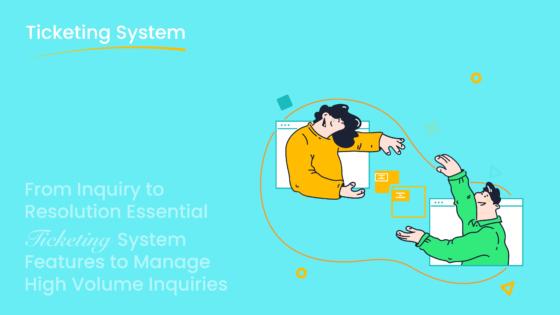
Using AI and Machine Learning for Ticket Routing
AI and machine learning have revolutionized ticket routing by enhancing accuracy and efficiency. These technologies analyze incoming tickets, identify patterns, and assign them to the most suitable agents. This process eliminates manual routing errors and ensures faster resolutions. For example, machine learning algorithms improve over time by leveraging historical data, enabling your ticketing workflow system to adapt to evolving customer needs.
Companies that integrate AI into their ticketing systems experience measurable benefits. According to Sentisum, automation improves first reply time by 15% or more. Additionally, AI reduces backlogs and ensures the most relevant agent handles each ticket, boosting customer satisfaction.
| Evidence Description | Improvement Percentage | Source |
|---|---|---|
| AI improves first reply time | 15% or higher | Sentisum |
| Automation reduces backlogs | N/A | Sentisum |
| Machine learning enhances accuracy over time | N/A | Sentisum |

Sobot's Ticketing System leverages AI-powered tools to automate ticket routing and classification. Features like custom trigger rules ensure tickets are assigned to the right agents instantly, reducing delays and improving operational efficiency. By adopting AI-driven solutions, you can optimize your ticketing workflow system and deliver exceptional customer support.
Monitoring Key Performance Metrics
Tracking key performance metrics is essential for optimizing your ticketing workflow system. Metrics like ticket volume, first response time (FRT), and resolution time (TTR) provide valuable insights into your team's efficiency and customer satisfaction. For example, monitoring FRT helps you identify bottlenecks in response times, while TTR highlights areas for improvement in issue resolution.
| Metric | Description | Importance |
|---|---|---|
| Ticket Volume | Measures the number of incoming service requests. | Helps in planning resources and reducing unnecessary tickets. |
| First Response Time (FRT) | Measures how quickly a support agent responds after a ticket is submitted. | Fast responses reassure customers and improve satisfaction. |
| Resolution Time (TTR) | Tracks the total time to fully resolve a ticket. | Faster resolution boosts productivity and customer satisfaction. |
| First Contact Resolution (FCR) | Measures the percentage of tickets resolved in the first interaction. | High FCR rates lead to fewer follow-ups and happier customers. |
| Customer Satisfaction (CSAT) | Reflects how happy customers are with the support received. | Direct measure of how well the support team meets customer expectations. |
Sobot's Ticketing System provides trusted analytics to monitor these metrics effectively. Smart notifications alert you to potential issues, enabling proactive adjustments. For instance, if ticket volume spikes during peak seasons, you can allocate resources accordingly to maintain efficiency. By leveraging analytics, you can refine your ticketing workflow system and enhance customer satisfaction.
Integrating CRM with Omnichannel Solutions like Sobot
Integrating your CRM with omnichannel solutions ensures seamless communication across platforms. This integration consolidates customer interactions from email, chat, and social media into a unified workspace, eliminating data silos and improving ticket resolution times. For example, Sobot's Omnichannel Solution reduces inbound discussion volume by 20%, enabling faster resolutions and enhancing self-service capabilities.
| Evidence Description | Impact on Ticket Resolution Time |
|---|---|
| Automation and AI reduce response times | Enhances overall efficiency in ticket handling |
| Automated ticketing system streamlines workflow | Resolves complex issues more quickly |
| Reduction in inbound discussion volume by 20% | Indicates improved self-service capabilities, leading to faster resolutions |
| Over 80% of answers are correct | Increases customer satisfaction and reduces follow-up queries |

Sobot's Ticketing System integrates seamlessly with its Omnichannel Solution, providing a unified platform for managing customer interactions. This integration allows your team to access all relevant data in one place, ensuring consistent and personalized support. By adopting omnichannel solutions, you can optimize your ticketing workflow system and deliver superior customer experiences.
Tip: Use Sobot's analytics tools to identify trends in customer interactions across channels. This data helps you refine your strategies and improve service quality.
Conducting Regular System Audits
Regular system audits are essential for maintaining the efficiency of your CRM ticketing system. Over time, outdated data, inefficient workflows, and unresolved technical issues can slow down your operations. By conducting periodic audits, you ensure that your ticketing workflow system remains optimized and aligned with your business goals.
Routine maintenance prevents your system from becoming bloated with unnecessary data or errors. For instance, outdated customer records or unresolved tickets can clutter your database, making it harder for agents to find relevant information. Regular audits help you identify and clean up such inefficiencies, ensuring your team operates at peak performance.
Key Benefits of Regular System Audits
- Improved Data Hygiene: Removing outdated or duplicate records ensures your CRM ticketing system remains accurate and reliable.
- Enhanced Workflow Efficiency: Audits reveal bottlenecks in your ticketing workflow system, allowing you to streamline processes.
- Proactive Issue Resolution: Identifying and addressing technical glitches early prevents them from escalating into larger problems.
- Adaptability to Evolving Needs: Regular reviews help you update features and workflows to meet changing customer expectations.
For example, Sobot's Ticketing System offers trusted analytics that can assist in tracking key performance indicators (KPIs) during audits. Metrics like ticket resolution time and first response time provide valuable insights into your system's performance. By comparing these metrics against industry benchmarks, you can pinpoint areas for improvement.
Tip: Use feedback from agents and customers to guide your audits. Surveys and user suggestions often highlight usability concerns that might otherwise go unnoticed.
Steps to Conduct an Effective System Audit
- Review Data Accuracy: Start by analyzing your database for outdated or incorrect information. Tools like Sobot's unified customer ID feature simplify this process by consolidating all relevant data into one view.
- Evaluate Workflow Performance: Examine how tickets move through your system. Are they being routed to the right agents? Are SLA targets being met? Sobot's custom trigger rules and SLA reminders can help you identify inefficiencies.
- Monitor Key Metrics: Track KPIs such as ticket volume, resolution time, and customer satisfaction scores. These metrics provide a clear picture of your system's health.
- Test System Features: Ensure all integrations and automations are functioning as intended. For instance, verify that your CRM integrates seamlessly with platforms like Shopify or Salesforce.
- Implement Updates: Based on your findings, update workflows, resolve technical issues, and train staff on new features.
Real-World Example
Consider a retail company experiencing a surge in customer inquiries during the holiday season. A system audit revealed that their ticketing workflow system struggled to handle the increased volume due to outdated routing rules. By updating these rules and leveraging Sobot's AI-powered ticket assignment, the company reduced response times by 25% and improved customer satisfaction scores.
Note: Conducting audits quarterly ensures your CRM ticketing system stays efficient and adaptable to seasonal changes or business growth.
Regular system audits are not just a maintenance task; they are a strategic investment in your operational success. By leveraging tools like Sobot's Ticketing System, you can ensure your workflows remain efficient, your data stays clean, and your team delivers exceptional customer support.
Step-by-Step Guide to Implementing Efficiency Strategies
Assessing Current CRM Ticketing Performance
Before optimizing ticketing workflows, you need to evaluate your current system's performance. This step provides a clear understanding of operational strengths and weaknesses. Start by reviewing key metrics that reflect your team's efficiency and customer satisfaction.
- Resolution rates: Measure how effectively your team resolves tickets.
- Average response times: Assess the speed of initial replies to customer inquiries.
- Ticket volumes: Analyze the number of tickets handled daily to identify workload patterns.
- Customer satisfaction scores: Gauge how well your team meets customer expectations.
- Average time in queue: Determine how long customers wait before receiving support.
- After-call work time: Evaluate the time agents spend on post-resolution tasks.
- Abandonment rate: Track the percentage of customers who leave before their issues are addressed.
Sobot's Ticketing System simplifies this process by providing trusted analytics and smart notifications. These tools help you monitor performance metrics in real-time, enabling proactive adjustments to improve efficiency.
Identifying Areas for Improvement
Once you assess performance, focus on identifying specific areas for improvement. Benchmarking statistics can guide this process by comparing your system's metrics against industry standards.
- Establish baseline metrics to measure current performance.
- Gather data from benchmarking partners for accurate comparisons.
- Analyze and compare results to pinpoint gaps and strengths.
- Highlight areas needing improvement, such as response times or ticket routing accuracy.
For example, if your abandonment rate exceeds industry averages, consider implementing automated ticket routing to reduce wait times. Sobot's AI-powered tools, including custom trigger rules, ensure tickets are assigned to the right agents promptly. This approach minimizes delays and enhances customer satisfaction.
Selecting the Right Ticket Management Solutions
Choosing the right ticket management solution is critical for optimizing ticket management workflows. Recent research highlights six essential criteria to guide your decision:
| Criteria | Description |
|---|---|
| Scalability | The system should grow with your business needs, handling increased ticket volume without performance loss. |
| Integration Capabilities | Ensure the system integrates well with existing tools to avoid future challenges. |
| Pricing Structure | Look for transparency in pricing to avoid hidden costs; understand different pricing models. |
| Customer Support Quality | Evaluate the effectiveness of support services, including response times and customer feedback. |
| User Interface | A user-friendly interface enhances the overall experience for both staff and customers. |
| Security Measures | Robust security features are essential to protect customer data and maintain trust. |
Sobot's Ticketing System meets all these criteria. Its scalability ensures seamless handling of increased ticket volumes during peak seasons. Integration capabilities allow compatibility with platforms like Shopify and Salesforce, reducing operational complexity. Transparent pricing and robust security measures further enhance its value. By choosing the right solution, you can streamline workflows and deliver exceptional customer support.
Training Staff and Rolling Out Changes
Effective training is the cornerstone of a successful ticketing system implementation. Your team must understand the tools and processes to maximize efficiency and deliver exceptional customer support. A structured approach ensures that staff adapts quickly and confidently to new workflows.
- Role-Specific Training: Tailor training sessions to address the unique responsibilities of each team. For instance, agents handling ticketing workflows should focus on features like automated routing and SLA management, while managers should learn to analyze performance metrics.
- Diverse Learning Formats: Offer a mix of live workshops, recorded tutorials, and interactive guides. This variety accommodates different learning styles and ensures comprehensive understanding.
- Internal Knowledge Base: Build a repository of FAQs, troubleshooting tips, and step-by-step instructions. Sobot’s categorized templates and canned responses simplify this process, making it easier for your team to access critical information.
- CRM Champions: Identify power users within your team who can assist colleagues and reinforce best practices. These champions act as on-the-ground resources, ensuring smooth transitions during rollouts.
Monitoring staff engagement is equally important. Track user logins, activity levels, and data entry consistency to identify gaps. If employees struggle with specific features, provide additional training or reminders. For example, Sobot’s intuitive interface and multilingual support reduce the learning curve, enabling faster adoption.
Tip: Use feedback from your team to refine training programs. Addressing their challenges fosters a culture of continuous improvement and ensures long-term success.
Continuously Monitoring and Refining Processes
Your ticketing system’s efficiency depends on ongoing evaluation and optimization. Continuous monitoring helps you identify bottlenecks, maintain data accuracy, and adapt to evolving customer needs.
- Data Quality Audits: Regularly review your CRM data to prevent decay. Outdated contact information or incomplete records can disrupt workflows. Sobot’s unified customer ID feature simplifies this process by consolidating all relevant data into one view.
- Real-Time Dashboards: Implement dashboards to track key metrics like ticket resolution time and first response time. These tools provide actionable insights, enabling you to address issues proactively.
- Automated Alerts: Set up notifications for data quality issues or SLA breaches. For example, if ticket volumes spike unexpectedly, alerts can help you allocate resources promptly.
Periodic audits also ensure compliance with regulations like GDPR and CCPA. By maintaining accurate records and monitoring changes in organizational structures, you reduce risks and enhance operational efficiency.
Consider a scenario where a retail company experiences a surge in ticketing inquiries during the holiday season. By leveraging Sobot’s analytics and custom trigger rules, the company identifies inefficiencies in ticket routing. Adjustments to workflows reduce response times by 20%, improving customer satisfaction.
Note: Schedule audits quarterly to align your ticketing system with business goals and seasonal demands. This proactive approach ensures sustained efficiency and customer satisfaction.
Maximizing CRM ticketing efficiency is essential for delivering exceptional customer experiences and achieving operational success. By implementing strategies like automation, clear prioritization rules, and regular system audits, you can streamline workflows and improve resolution times. Tools like Sobot's Ticketing System simplify these processes by integrating communication channels, automating ticket routing, and providing actionable analytics. These features not only enhance productivity but also lead to enhanced customer satisfaction.
The impact of efficient ticketing systems is evident. Companies with superior customer experiences often see revenue growth, while improved operational efficiency directly correlates with stronger customer satisfaction. For instance, Coca-Cola Germany scaled operations effectively by adopting Salesforce CRM, which improved their ability to meet customer needs. Similarly, a 1% improvement in first contact resolution reduces costs by 1%, demonstrating the tangible benefits of optimized ticketing workflows.
Take proactive steps to refine your CRM ticketing system. With tools like Sobot's Ticketing System, you can deliver faster resolutions, retain more customers, and achieve long-term success.
FAQ
How does Sobot's Ticketing System improve response times?
Sobot's Ticketing System automates ticket routing using custom trigger rules. It assigns tickets to the right agents instantly, reducing delays. Studies show automation improves first reply time by 15% or more (Sentisum). Faster responses enhance customer satisfaction and operational efficiency.
Can Sobot's Ticketing System integrate with e-commerce platforms?
Yes, Sobot's Ticketing System integrates seamlessly with platforms like Shopify. This compatibility consolidates customer interactions into one workspace, reducing data fragmentation. Integration ensures smoother workflows and faster resolutions, especially for businesses handling high ticket volumes during peak seasons.
What are SLA reminders, and how do they help?
SLA reminders in Sobot's Ticketing System notify agents about approaching deadlines for ticket resolution. These alerts ensure compliance with service agreements, reducing missed deadlines. SLA management improves resolution rates and customer satisfaction by maintaining consistent service quality.
Does Sobot's Ticketing System support multilingual customer service?
Yes, Sobot's Ticketing System offers multilingual support. It translates tickets into multiple languages, enabling global customer service. This feature ensures clear communication with diverse audiences, improving satisfaction and reducing miscommunication risks.
How can analytics in Sobot's Ticketing System optimize workflows?
Sobot's trusted analytics track key metrics like ticket volume and resolution time. These insights help you identify bottlenecks and refine workflows. For example, monitoring first response time highlights areas needing improvement, ensuring faster resolutions and better customer experiences.
See Also
Effective Strategies for Managing Live Chat Representatives
Excelling in Live Chat for Customer Assistance
Best Practices for Quality Management in Call Centers
